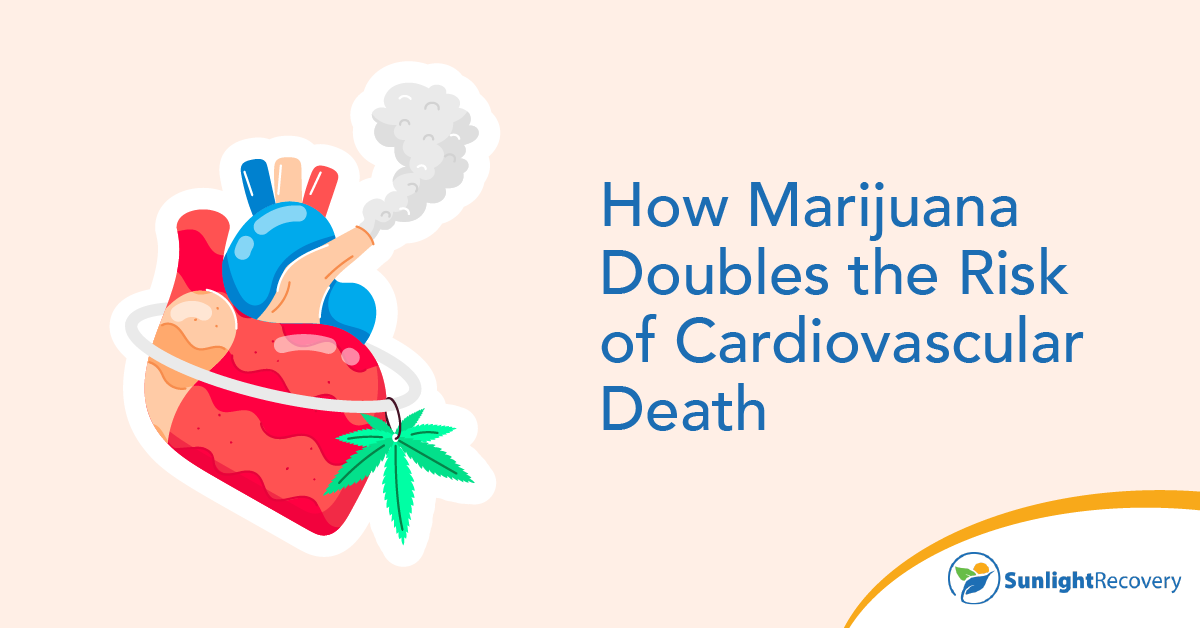Increasingly, the use of marijuana has become both legal and socially acceptable. Due to its popularity, many people assume that casual or even regular use carries little long-term risk. But emerging research is challenging this assumption, especially when it comes to cardiovascular health.
Studies examining the link between marijuana and heart disease suggest that cannabis use may significantly increase the risk of cardiovascular-related complications, including heart disease. For those who view marijuana as a relatively harmless substance, this research might change your opinion. Let’s take a closer look at the potential risks of marijuana use and steps you can take to improve your health.
The Link Between Marijuana Use and Heart Health
Marijuana use is on the rise across the United States, fueled by expanding legalization and a growing public perception of the drug as safe or even therapeutic. In 2021 alone, over 50 million people reported using cannabis. Some use it recreationally, while others turn to marijuana to manage anxiety, chronic condition symptoms, pain or sleep issues. However, despite its increasing normalization, the drug is far from harmless.
When consumed, marijuana interacts with the body’s endocannabinoid system, which plays a role in regulating:
- Mood
- Appetite
- Pain sensation
- Cardiovascular function
Tetrahydrocannabinol (THC), the primary psychoactive component of marijuana, can raise heart rate, alter blood pressure and impact the nervous system. Although these effects are usually temporary, ingesting marijuana regularly (particularly through inhalation) can place added stress on the heart and blood vessels. Over time, this can increase your risk of various cardiovascular conditions, including heart disease.
Marijuana and Heart Disease: What Recent Research Says
We’ve established that research has found a link between marijuana and heart disease. But what exactly does it say?
A 2024 marijuana study published in the Journal of the American Heart Association examined data from over 400,000 adults and revealed a troubling trend. Daily use of cannabis — primarily through smoking — was associated with a 25% increased risk of heart attack and a 42% higher risk of stroke when compared to those who didn’t use the drug. Even less frequent use was linked to elevated cardiovascular risk, with weekly cannabis users experiencing a 3% increased risk of heart attack and a 5% higher risk of stroke.
These findings are supported by other studies. For example, both National Geographic and JAMA Cardiology have reported a connection between frequent marijuana use and cardiovascular disease. While more research is needed to fully understand this connection, the data clearly points to health risks that should be taken seriously.
How to Reduce Health Risks If You Use Marijuana
Whether you use cannabis for medical or recreational reasons, it’s important to be aware of potential risks. The most straightforward way to reduce marijuana-related health issues is to avoid the substance entirely. If you’re not prepared to eliminate cannabis use, there are still steps you can take to reduce your risk of cardiovascular complications:
- Limit frequency and dosage. Reducing how often and how much you consume may help lower your risk of heart attack or stroke.
- Avoid smoking. Inhalation — especially smoking — is linked to greater cardiovascular strain. Alternatives, such as edibles, tinctures or vaporizers, still carry risks; however, compared to smoking, they may have less impact on your heart and lungs.
- Monitor your heart health. If you use marijuana regularly or even semiregularly, speak with your primary care provider about monitoring your health. This may include checking your blood pressure, cholesterol levels and heart rate. Early screening for heart disease risk factors may help you catch potential problems before they develop.
- Be cautious with preexisting conditions. Individuals with high blood pressure, arrhythmias or a history of heart disease should be especially careful. Cannabis can interact with medications and exacerbate existing cardiovascular concerns.
- Stay informed. As research evolves, so does our understanding of marijuana’s effects on the body. Staying up to date on related news from reputable medical sources can help you make informed choices about your health.
When to Seek Medical or Addiction Support
Not all marijuana use poses a serious health risk, but certain signs may indicate it’s time to seek help. If you’re concerned about physical symptoms, dependence or changes in daily functioning, early intervention may make a meaningful difference. Here are some key signs to look for:
- You experience heart-related symptoms. Chest pain, shortness of breath, heart palpitations or dizziness — especially after using cannabis — should be evaluated by a health care provider. These symptoms may signal a cardiovascular event or an underlying condition that needs prompt attention.
- You’re using marijuana more often. An increase in use frequency or an inability to control your use may be a sign of cannabis use disorder. Dependence can affect both your physical and mental health and may require professional support.
- Marijuana use is affecting your daily life. Another sign of cannabis use disorder is difficulty managing responsibilities. If marijuana is disrupting your work, school or social relationships, you should consider seeking support.
- You’re managing a chronic health condition. If you have a history of heart disease, high blood pressure or other cardiovascular issues, speak with a health care provider before using marijuana. A medical professional can help assess your risks and recommend safer approaches.
Are you worried about frequent marijuana use? At Sunlight Recovery, we offer a wide range of addiction and mental health resources designed to improve health, wellness and quality of life. Contact us today to learn more.
FAQs
Here are answers to some frequently asked questions about marijuana use and health risks.






